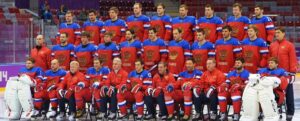February 11 is Winter Sports Day in Russia. Learn the history, features and traditions of the holiday.
Winter Sports Day in Russia in 2023

Since 2015, another holiday has appeared in the Russian Federation that is directly related to sports. Winter Sports Day in Russia is celebrated annually on the first weekend after February 7th. A new sports festival was initiated by the Russian government and the Olympic Committee. February 7 is a symbolic date for Russians – in 2014, on this day, the flame of the Olympic flame lit up Sochi. The past Olympic Winter Games in Sochi are considered to be one of the most well-prepared, spectacular and successful in the history of world competitions.
After the first celebration of Winter Sports Day in Russia in 2015, the organizers decided to celebrate the holiday on the first weekend immediately after February 7th. The floating schedule of the holiday allows fans of winter sports to fully immerse themselves in the atmosphere of active pastime and unbridled fun in the fresh air. A celebration that teaches constantly over the weekend is a great opportunity to spend time with the family, learning the intricacies of winter sports.
An excursion into history: the development of winter sports in Russia
The Russian Federation is famous for its amazing achievements in sports. World and Olympic champions are pupils of famous schools with a century (without exaggeration) history. Even during the reign of Peter I, compulsory discipline was introduced in educational institutions, responsible for the physical development of students. On the basis of schools, final competitions were necessarily held, as well as away competitions. The spectacle of the events held attracted more and more spectators. Excitement and admiration that reigned during sports tournaments captivated the audience so much that, returning home, they tried to reproduce what they had already seen on their street or in their native village.
At the beginning of the 19th century, private institutions appeared in Russia, where they were closely involved in the physical education of aristocrats. Swimming, fencing, shooting and other sports were promoted both in theaters and in literature. The construction of arenas, skating rinks, shooting galleries and hippodromes took on impressive proportions – specialized sites were erected in all cities of the country, and small towns and villages – without fail, a skating rink was flooded for the winter.
The leading figures of the country also contributed in every possible way to improving the health of the nation. At the beginning of the 20th century, popular sports magazines began to be published: Sport, Cyclist, Okhotnik and others. Around the same period, big sport became available not only to representatives of noble families.
Naturally, the specific climate of the country could not but play a special role in the development of sports culture.The reason for the popularization of winter sports was a long, student and protracted winter. Most summer sports classes took place in the fresh air – then covered stadiums and closed sports schools were not built. Therefore, in order not to be treated in winter, many athletes continued their training, but already adapted under the cold season. Ski, skates, sleds, figure skating and other sports sports reach a new qualitative level.
By the middle of the last century, Russian athletes began to take an active part in the championships of Europe and the world, in international sports, in the Olympic Games. Many medals, cups and letters inspired not only the participants in the competition, but the whole country. Young people tried to inherit their idols, adopting the best from them, but within the limits of accessibility. It was because of the peculiar “accessibility” in the Russian Federation that it was easiest to engage in winter sports-after all, the inventory did not require special costs, and the climate contributed.
Modern winter sports in the Russian Federation
Today, the following winter sports are widespread and constantly developing in our country:
- skeleton,
- hockey,
- curling,
- skiing and derivatives (such as freestyle, ski biases, springboard jumps, biathlon),
- skating sport and figure skating,
- Short track,
- bobsled,
- Snowboard-Cross,
- Snowmen and sleigh skating.
In regions where the snow is an infrequent guest, artificial snow and ice are used for training. Therefore, winter competitions became possible almost everywhere and at any time of the year. One of the most famous multi -sports tournaments can be considered Olympic winter games, which were first officially connected in 1924 to the already popular summer games.
The maximum number of participating countries (88) and the largest number of athletes (2800 people) were recorded at the XXII Olympic Winter Games held in the Russian city of Sochi.
Winter Sports Day in Russia
All the measures held for the Day of Winter Sports are aimed at introducing the young generation to physical exercises, at promoting a healthy lifestyle, and instilling love for sports. The celebration is also considered a kind of tribute to professional athletes who glorified the Russian Federation at the Sochi Olympics.
In the solemn part of the program on the occasion of the winter sports day in Russia, it is necessary to celebrate paralympians, popular athletes of past years and young talents, inspiring the hope that winter sports in the Russian Federation will not go into oblivion, but will continue to grow and popularize. In addition to official solemn events, in all regions of our country, mini-compulsions and town tournaments, various flash mobs, spectacular concerts and presentations of sports sections, circles, schools are held.Demonstration performances of hockey players, figure skaters and skiers are a favorite part of most winter sports fans.
The founders of Winter Sports Day in Russia sincerely hope that the holiday will take root and develop, thanks to which it will be possible to grow a healthy nation that prefers physical culture and active recreation, rather than addictions.

